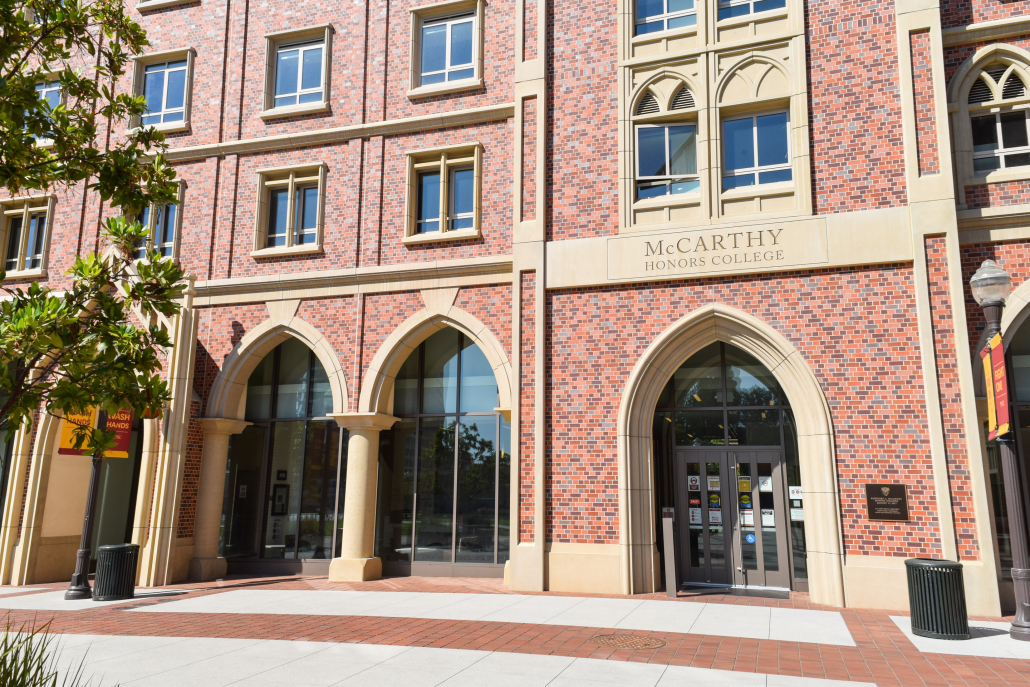RAs impacted by financial aid changes

The Resident Assistant Organizing Committee launched a petition Wednesday asking for increased compensation following an audit that negatively impacted RAs financial aid packages. At the time of publication, the petition had accumulated 287 signatures.
According to the petition and RAs that spoke to the Daily Trojan, when RAs received their financial aid packages a week or two before they started work in August, many noticed the amount was significantly less than aid they received in the past.
Makayla Howard, a junior majoring in fine arts and an RA at Pardee Tower, said that because the free housing and dining RAs receive lowers the cost of attendance, many received less financial aid than they would have without the position. Since RAs received less financial aid, many lost money as a result of their positions despite working long hours.
Now, RAs are urging the University for a $10,730 semesterly stipend that would not be deducted from financial aid — equivalent to the cost of housing and dining at McCarthy Honors College, the most expensive residential college.
Howard helped organize the petition and wrote an Oct. 25 collective action letter to Residential Education Senior Director Grant Burlew. When she received her financial aid package a few weeks before the start of the semester, Howard noticed a “$6,000 difference in grant aid.” Many other RAs lost work study funds and thousands of dollars, Howard said.
According to the petition, the financial aid decrease caused many RAs to “accrue late fees” while balancing work responsibilities and paying tuition. In the petition, the RA Organizing Committee called for the immediate removal of RA’s collection holds.
Howard said she was unable to pay her bill until the very last minute, when she received her coronavirus grant, because she and her parents had expected the cost of housing and dining to be taken care of.
Felanté Charlemagne, a senior majoring in sociology and an RA at Webb Tower, said they’re in a similar position — their cost of attendance increased by $6,000 this year and they are unsure of how to pay that off. Due to Charlemagne’s overdue fees, the University placed a hold on their account that restricts them from registering for classes.
“I don’t know where I’m going to conjure that [money] from,” Charlemagne said. “I haven’t registered for classes and my date was like two weeks ago because it’s locked.”
As an RA, Howard said she works long hours, including a 40-hour week at the beginning of the semester and 24-hour emergency response shifts. Howard also said the financial aid changes erased the work she does. Since housing and dining are not free, her labor pays for it.
“It was just really ridiculous to be doing all this work for the RAs and then also lose money at the same time,” Howard said.
Howard said that the University justifies the limited compensation by referring to RAs as student leaders rather than student workers.
According to Howard, the relationship between ResEd and RAs is “really exploitative,” as the RAs work several undocumented hours and don’t have a mechanism to air their grievances. While the RAs look to continue organizing, Howard also said RAs don’t have a union or voice to speak to when “things go wrong.”
“USC takes advantage of the fact that we’re young kids who need housing in L.A. and have no other option,” Howard said. “Also, they’re taking advantage of the fact that we have no system of advocating for our workers’ rights.”
In the petition, the RA Organizing Committee demanded the establishment of an RA advisory board that would attend “higher-up meetings” to “have a voice on the decisions impacting our livelihood.”
In the letter addressed to Burlew, a group of RAs expressed discontent with the changes that reduced their need-based aid in proportion to housing and dining expenses.
“When added, the removal of housing and dining from RAs’ estimated cost of attendance and the increase in actual cost of attendance, has created a preposterous situation: RAs with need-based financial aid packages are paying to be RAs,” the letter read.
In an email obtained by the Daily Trojan, Burlew issued a response to Howard on Nov. 11, writing that federal regulations and USC policy require that “all students’ resources … be taken into consideration when calculating a student’s eligibility for need-based financial aid.”
In the email, Burlew wrote that RAs with current holds or late fees are encouraged to contact financial aid to discuss their individual situation, and that ResEd will work with financial aid if the restriction is related to the student’s RA position.
He also wrote that the RA advisory board, which has typically consisted of third and fourth year students, will be restarted in the spring semester after a pause this fall as ResEd was “still focusing on providing a safe move-in experience and start to the school year.”
In a statement to the Daily Trojan, Student Affairs wrote that it “values all resident assistants” and that RA applicants are informed of their employment’s impact on financial aid.
“When students apply for the position (and on the website), they are told that the financial compensation for the RA position is in the form of covering the financial aid costs of USC Housing and a meal package,” the statement read. “Because each individual’s situation is unique, the financial aid package will affect each student’s overall aid package differently.”

